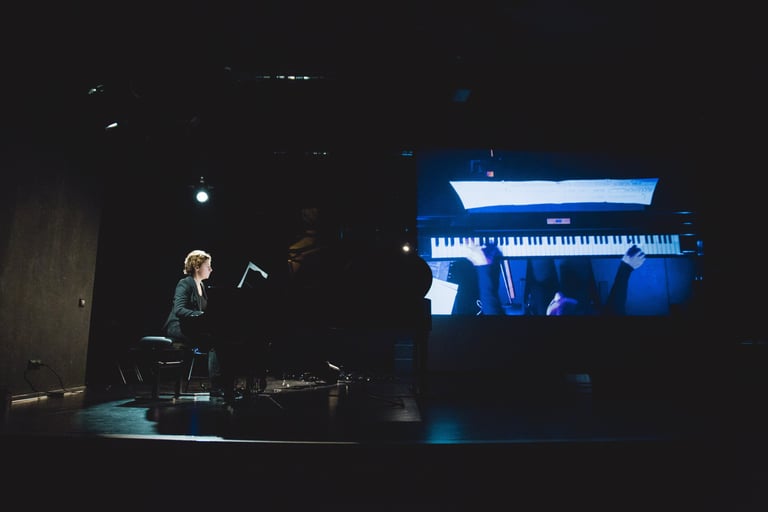Piano Hero


In the context of contemporary art, curatorial thought has developed into a key element of a well-formed presentation. In their works, curators and artists deliberately adopt expressive means that, when conceptually combined, reveal specific social, historical or cultural contexts.
The Piano Hero is a research into the image and activity of the contemporary pianist. The genre of a piano recital, still holding the leading position in our concert halls, echoes the Romanticism idea of the piano hero where complicated music programmes are performed from memory and the piano is set at a 90-degree angle to the audience (so that the spectators could observe the virtuoso technique and facial expressions of the pianist). In the meantime, already at the beginning of the 20th century, compositional ideas started taking a different direction, i.e. conceptual works appear, media and advanced techniques become employed. It might seem as a paradox, but the formats of presenting music in the concert halls still remain unchanged.
Musicologist Alex Ross says, "The problem is not that today's way of performing music at concerts has become desperately trite, but that music, for a way too long, has been kept constrained in the same format which is reproduced almost universally."
The key message of The Piano Hero is to present compositions of the 19th, 20th and 21st centuries that reflect the diversity of the piano repertoire along with the variable curve and wide possibilities of the pianist's performance on the stage.
PROGRAM:
Francesco Filidei – Toccata
Johannes Kreidler – Study for Piano, Audio and Video Playback
Ferenz Liszt – Rhapsodhy Nr. 2
John Cage – 4.33
Henry Cowell – The Banshee
Stefan Prins – Piano Hero #1
REALISATION TEAM:
Performer: Marta Finkelštein
Visualisation director: Kornelijus Jaroševičius
Light Design: Giedrius Gurevičius
Sound: MiSC